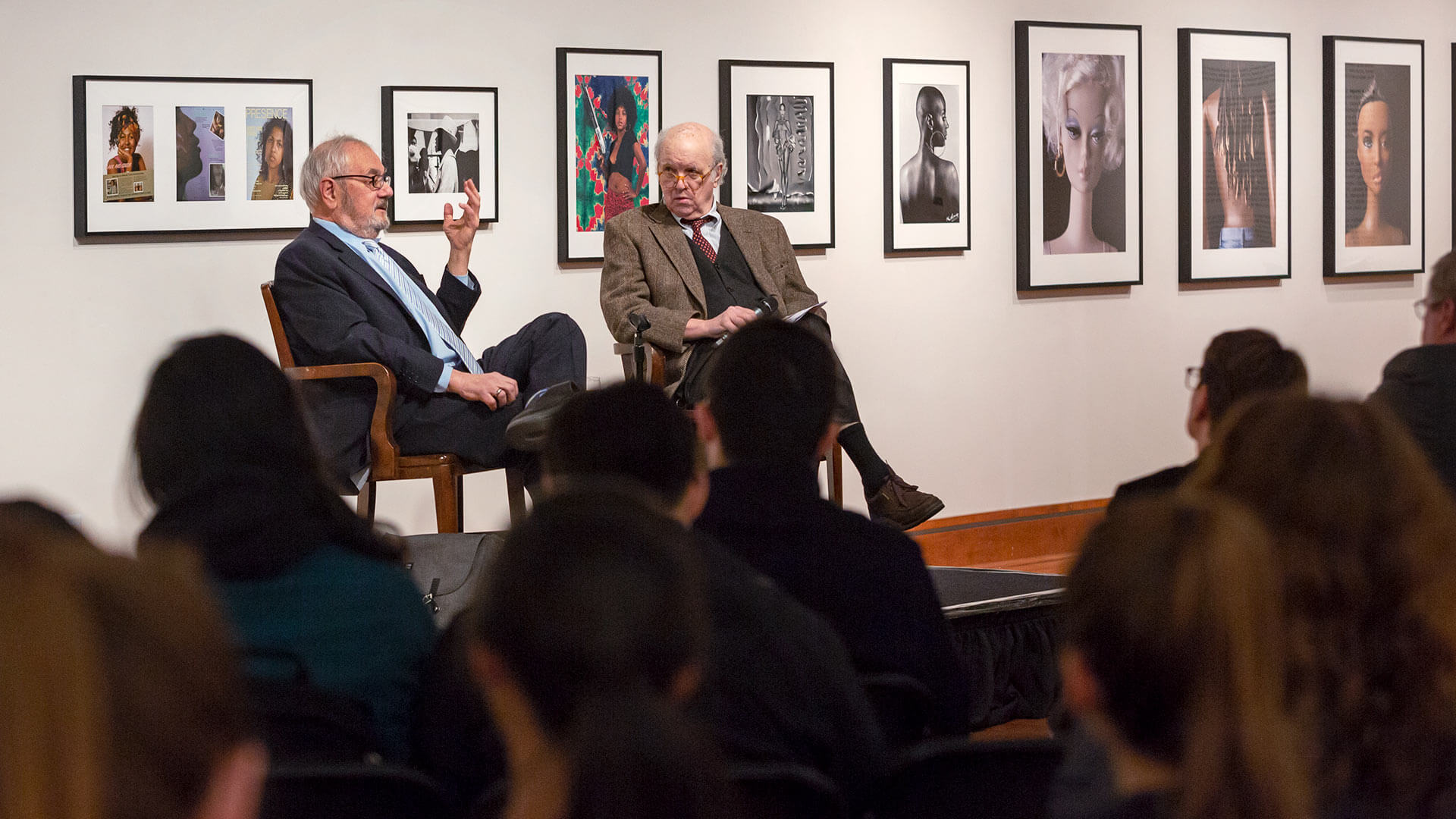- March 28, 2019
- By Liam Farrell
Though the national economy is beginning to slow, former U.S. Rep. Barney Frank, a lead author of the federal response to the Great Recession, told a University of Maryland audience yesterday that he doesn’t foresee a similar catastrophe in the near future.
Frank, known for the 2010 Dodd–Frank Wall Street Reform and Consumer Protection Act, explained that financial institutions are still carrying less risk and keeping larger reserves than before the Wall Street meltdown in 2008.
“I see very little chance of a financial crisis,” he said. “(But) at some point, the innovation outruns the regulation.”
A Massachusetts congressman from 1981 to 2013 who chaired the House Financial Services Committee from 2007–11, Frank took part in a Q&A at the David C. Driskell Center with Thomas Edsall, an opinion columnist for The New York Times. The occasion was the 2019 Fishlinger Family Lecture, hosted by the College of Behavioral and Social Sciences, the Center for the Study of Business Ethics, Regulation and Crime (C-BERC) and the Robert H. Smith School of Business.
Frank said the bulk of the financial reform bill has “held up pretty well,” outside of how he believes the Trump administration has curtailed the effectiveness of the Consumer Financial Protection Bureau.
“With the exception of CFPB,” he said, “they have not done serious damage.”
Other issues in the conversation included:
- Sexuality: In 1987, Frank was the first member of Congress to voluntarily come out as gay, and in 2012 was the first to marry a same-sex partner. While at the start of his career, being gay appeared to be an impediment to being a politician, Frank said that by the time he retired, “it was much more socially acceptable to be gay.” He said he is struck by how “it’s no big deal” that Democratic presidential candidate Pete Buttigieg, mayor of South Bend, Ind., is gay and married.
- Lobbying: While big banks have clout with regulatory agencies, lobbying on actual legislation is more influential when it comes from the smaller institutions that are found in every politician’s district, Frank said. “Everybody’s got community bankers. They are everybody’s pal.”
- Earmarks: Frank said the ongoing ban on earmarks, which are often used to trade funding a local project for a vote, is a mistake. While lists of pork projects can rile up voters on the lookout for wasteful spending, “they are ways to get unpopular things done.”
- Progressive politics: While new members of the House of Representatives have been touting reform proposals such as Medicare for All and the Green New Deal, Frank believes they are overstating how much popular support those measures actually have. “They see a majority sentiment for their views in the country which I wish was there,” he said. “They are unwise in their strategy.”
